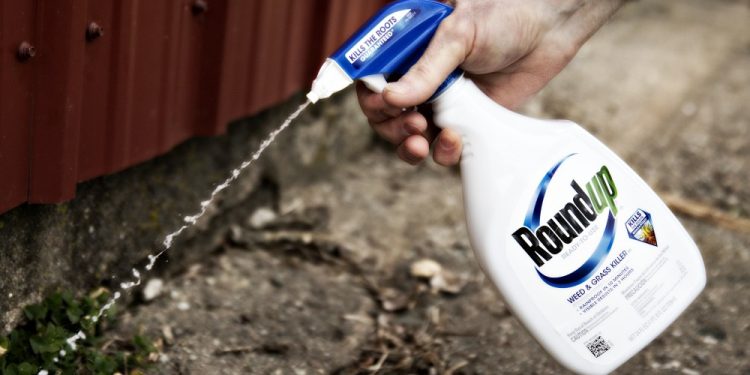(Natural News)—Three former users of Roundup weed killer have won more than $1.5 billion in a judgment against Monsanto, now a unit of Bayer AG, that a Missouri jury says must pay its victims for the glyphosate-based herbicide giving them cancer.
Jurors in state court in Jefferson City awarded James Draeger, Valerie Gunther and Dan Anderson a total of $61.1 million in actual damages along with another $500 million each in punitive damages over claims that using Roundup on their lawns and gardens caused them to develop non-Hodgkin lymphoma.
The suit is one of many in recent days in which juries have ruled against Monsanto over claims concerning the carcinogenic properties of its Roundup formula. This latest suit is one of the largest to be handed down against a U.S.-based corporate defendant this year.
(Related: In 2021, a court ruled that Monsanto showed “willful” disregard for human safety by selling cancer-causing glyphosate.)
Will Monsanto survive the litigatory pressure?
Though Monsanto has won other similar such cases in the past, the fact that it lost this big one along with numerous others recently, has caused speculation that the now-German-owned drug and agriculture chemical company may need to alter its legal strategy.
The jury, based in Cole County, Mo., ruled that Monsanto is liable for claims of negligence, design defects and failing to warn plaintiffs of the potential health damages of using Roundup, the primary active ingredient of which is glyphosate.
Each of the three plaintiffs was diagnosed with non-Hodgkin lymphoma that is said to have been caused by the simple use of Roundup on their family properties. The weed killer is highly toxic, we now know, and Monsanto is known for hiding and covering up the damning science against its products.
Monsanto is appealing the ruling, which could end up resulting in reduced punitive damages. It all depends on what happens and whether or not the case makes it to the Supreme Court, which reportedly will not allow punitive damages to be this high based on court guidance.
Bayer, which purchased Monsanto a few years back, continues to claim that decades of studies support the safe use of Roundup.
The case marks the fourth straight loss for Bayer in court this year. Union Investment, one of Bayer’s top 10 shareholders, recently called on the company to try to engage more directly with plaintiffs to settle cases rather than see them through to court.
Meanwhile, the plaintiffs are celebrating the victory, as is their lawyer, Bart Rankin, who said in a statement that this is just the first case among many to be won on behalf of thousands of plaintiffs all across the country.
In many ways, Monsanto has turned out to be a toxic asset for Bayer, which everyone cringed at when the company took over the chemical giant. With so much evidence floating around out there about the dangers of glyphosate, it is almost shocking that Bayer made the decision to buy at all.
Nevertheless, suits against Bayer continue to flood the courts, and the company has said in a recent statement that it plans to present stronger arguments in the appeal that it says will overturn the judgment.
“It said in the recent trials that have gone against the company, courts have improperly permitted plaintiffs to misrepresent the European Union’s renewal process for glyphosate and the safety assessment by the U.S. Environmental Protection Agency,” Reuters reported about the matter.
Last week, the EU Commission said it would renew approval for glyphosate based on the safety assessments of the European Food Agency and European Chemicals Agency following the failure of EU member states to provide a clear opinion one way or another about the herbicide’s continued use.
More of the latest news about the downfall of the chemical industry can be found at Collapse.news.
Sources for this article include:
Controlling Protein Is One of the Globalists’ Primary Goals
Between the globalists, corporate interests, and our own government, the food supply is being targeted from multiple angles. It isn’t just silly regulations and misguided subsidies driving natural foods away. Bird flu, sabotaged food processing plants, mysterious deaths of entire cattle herds, arson attacks, and an incessant push to make climate change the primary consideration for all things are combining for a perfect storm to exacerbate the ongoing food crisis.
The primary target is protein. Specifically, they’re going after beef as the environmental boogeyman. They want us eating vegetable-based proteins, lab-grown meat, or even bugs instead of anything that walked the pastures of America. This is why we launched a long-term storage prepper beef company that provides high-quality food that’s shelf-stable for up to 25-years.
At Prepper All-Naturals, we believe Americans should be eating real food today and into the future regardless of what the powers-that-be demand of us. We will never use lab-grown beef. We will never allow our cattle to be injected with mRNA vaccines. We will never bow to the draconian diktats of the climate change cult.
Visit Prepper All-Naturals and use promo code “veterans25” to get 25% off plus free shipping on Ribeye, NY Strip, Tenderloin, and other high-quality cuts of beef. It’s cooked sous vide, then freeze dried and packaged with no other ingredients, just beef. Stock up for the long haul today.





